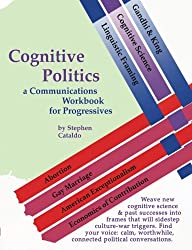As we consider launching missiles into Syria, perhaps sacrificing American troops in another Middle East war, perhaps letting the world see chemical weapons get used successfully without repercussions, there aren't easy answers. But one thing we can do, one thing we owe the Syrian civilians and US troops, is to engage in a serious conversation that is about the real situation in Syria and not just our political habits -- not fall into habitual liberal and conservative patterns.
Without suggesting a particular course of action, what would improve the debate?
In recent years the US has divided, and built up filter bubbles, between Democrat-liberal and Republican-conservative. The policies of both parties might not be that terribly far apart ... the policies of both parties would be right-wing and far-right-wing in France, both working for the same corporate donors ... but that hasn't stopped them from creating a frame of liberal vs conservative that most non-politicians at home have adopted. On issue after issue, if Obama and his supporters are for it, Republicans are against it, and people with no direct stake in partisan politics choose teams anyway.
Syria scrambles that frame. We've divided into isolationist and interventionist right across party lines. If we're going to use framing to improve the debates in this country -- and right now a better discussion on Syria is the best thing I can think of since I don't have an "answer" for what to do -- let's consciously pull ourselves out of our habitual left-right frame. We don't need politicians to lead on this: ask your friends if they identify as isolationist or interventionist. Get people who spend all their time in one pair of groups to pair up differently. At a minimum this can help break down the liberal-conservative groupings that are so overused, and that so easily become a cover for special interests. Ideally if we group and re-group differently on each issue than people will stop identifying so deeply with any partisan grouping.
Gandhi saw apathy in the face of evil as worse than violent resistant. If we want to get our nation on the side of peace, we can't just turn to this moment's war weariness, we have to get better at engaging people's fears that are driving them to support war. And in Syria, there are a lot of valid, honest reasons to use -- and a huge number of reasons to at least threaten to use -- military force. Recognizing that -- being better able to articulate the reasons for war than people who actually support war -- doesn't mean declaring that the military-force side of the balance has more weight than the reasons not to get involved. Yes there are real and desperate reasons to get involved in Syria; yes our government has led us to intervene in disastrous ways in recent years.
